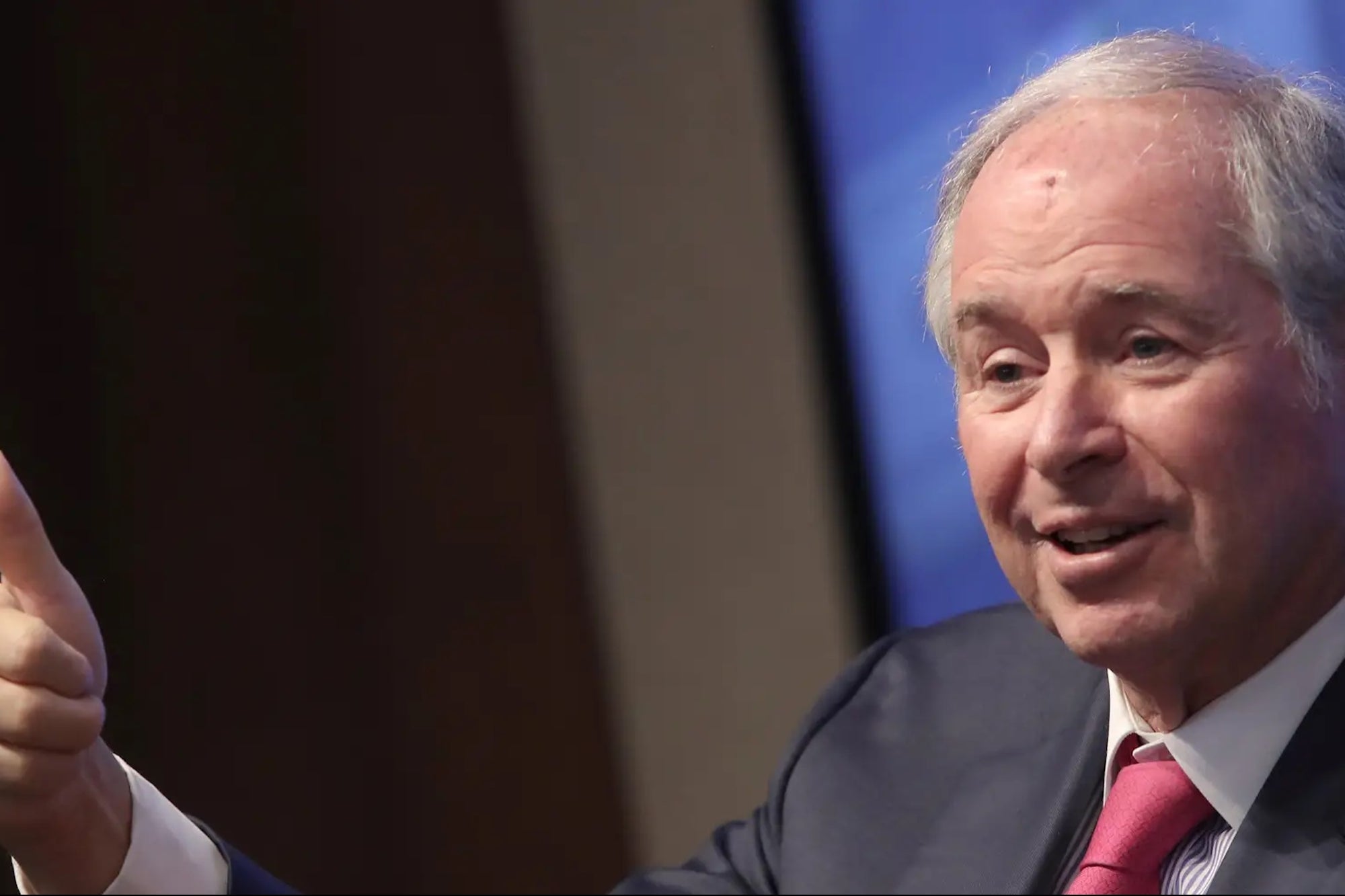No Recession Risk Regardless of Who Wins the White House, Says Blackstone's Steve Schwarzman Private equity behemoth Blackstone has about $1 trillion in assets under management.
Key Takeaways
- Steve Schwarzman doesn't expect a recession whether Donald Trump or Kamala Harris wins the election.
- The Blackstone CEO said the US economy looks robust, and both candidates have pro-growth policies.
- The Federal Reserve cut interest rates in September and signaled that more cuts are coming.

This article originally appeared on Business Insider.
The U.S. will probably skirt a recession whether Donald Trump regains the presidency in November or loses to Kamala Harris, Steve Schwarzman said.
"I don't see a recession risk because the economy is pretty strong, and both of the candidates keep mentioning a lot of stimulative policies," the Blackstone CEO and cofounder told Bloomberg on Wednesday.
Recession fears have loomed in recent years after consumers were hit by soaring prices for food, fuel, and other basics and steeper monthly payments on their credit cards, car loans, mortgages, and other debts. Small businesses, regional banks, commercial real estate, and other sectors have also been squeezed.
However, key indicators such as GDP growth, job numbers, and retail sales have proven resilient to the tough economic backdrop. Inflation has cooled from a 40-year high of more than 9% in mid-2022 to below 3% in recent months.
The Federal Reserve also pared interest rates in September and signaled more cuts are coming after raising them from nearly zero to north of 5% between March 2022 and July 2023.
Schwarzman, whose private equity behemoth has about $1 trillion in assets under management, predicted a brighter backdrop for striking deals and exiting bets as rates fall.
"It's really about interest rates and economic growth," Schwarzman said. "Interest rates will continue to go down, and that'll provide an impetus of more transactions both on the buy and the sell."
The Wall Street billionaire said in 2022 that he wouldn't support Trump's re-election bid. But he reversed course in May, bemoaning rising antisemitism and saying that US economic, immigration, and foreign policies were headed in the "wrong direction."
Trump has proposed extending tax cuts he made as president in 2017 that are set to expire, reducing the corporate tax rate to 15% for manufacturers, eliminating income taxes on Social Security benefits, scrapping taxes on tips, and other measures that could boost growth.
Vice President Harris has suggested expanding the child tax credit, earned income tax credit, and small business tax deductions. She's also proposed giving up to $25,000 in financial assistance to qualified first-time homebuyers while also backing an increase in the corporate income tax rate to 28%.
Fed Challenge
A key challenge for Fed officials now is ensuring inflation stays under control without choking growth or causing unemployment to spike.
"They have got to make sure they don't go too hard now," Bank of America CEO Brian Moynihan told Bloomberg TV on Wednesday, adding the central bank risks cutting "too fast or too slow."
Echoing Schwarzman, he added: "With an unemployment rate at 4% and wage growth at 5%, it's hard for an economist to convince the world there's going to be a recession."
Meanwhile, Blackrock's Larry Fink said this week the election "doesn't matter" to the long-term market outlook.









